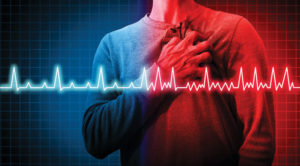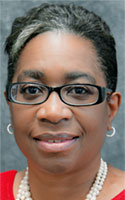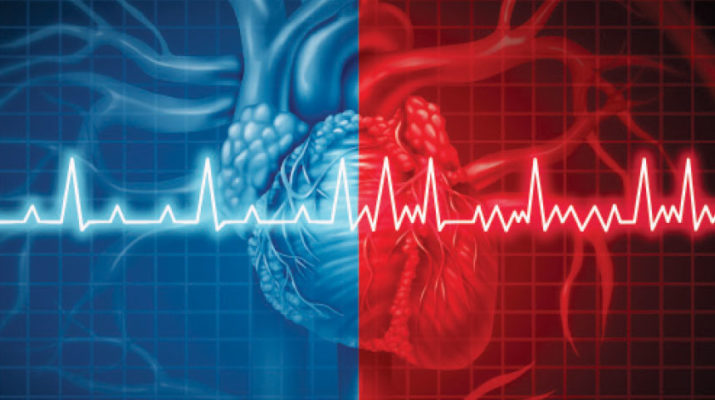Atrial fibrillation can lead to life-threatening heart disease, stroke
By Daniel Baldwin
 Board members and volunteers of the American Heart Association have been strong contributors to the Mohawk Valley community.
Board members and volunteers of the American Heart Association have been strong contributors to the Mohawk Valley community.
They hosted the Go Red Campaign for Women luncheon at the Harts Hill Inn in Whitesboro on May 1 and America’s Greatest Heart Run and Walk at Utica College last March.
While these events serve as a way for the organization to raise money and support the community, they also are the perfect opportunity for residents to learn how to maintain a healthy heart and avoid getting heart disease and stroke.
Since heart disease is the No. 1 killer worldwide, according to the association’s website, it is no surprise to see board members and volunteers working hard to warn people about this disease.
But heart disease and stroke are not the only things the association focuses on, as the members are also warning people about atrial fibrillation.
According to a recent Centers for Disease Control study, 2.7-6.1 million people are affected by atrial fibrillation in the United States. This type of heart disease is not deadly, but it could increase the risk of heart disease and stroke if left untreated.
“Atrial fibrillation is an irregular heartbeat that causes the heart to fail to pump enough blood to the rest of the body,” Utica doctor and AHA board member Cynthia Jones said. “The common symptoms of atrial fibrillation are a racing heart, fluttering palpitations, shortness of breath, lightheadedness, fatigue, fainting, anxiety, and chest pain.”
Board members of the AHA do not have data on how many Mohawk Valley residents are affected by this disease, but they do have strong knowledge behind it.
Last September was Atrial Fibrillation Awareness Month, and the association’s members did not want to miss this month-long chance of raising awareness for this disease.
“AFib Awareness Month is not celebrated solely by the American Heart Association,” Jones said. “But it’s important to take whatever time we can to educate people about atrial fibrillation. Staff members and volunteers visit businesses and community events to educate and raise awareness.”
Flying under radar

People are less aware of this heart disease, and they hardly know its symptoms, according to Jones. That is the one reason why AFib Awareness Month exists.
Throughout the month of September the AHA and other doctors and cardiologists warn residents about this disease and explain its symptoms. Newspaper publications and media outlets are also taking advantage of this opportunity, putting together T.V. commercials and articles about atrial fibrillation.
“Many patients are unaware of atrial fibrillation,” Jones said. “However, increased publications in community settings such as this article and increased media coverage especially with television and the internet will help increase knowledge of the disease. While I can’t speak to the origin of AFib Awareness Month, its existence does help educate the public about atrial fibrillation and reminds them to see their health care providers.”
The ways to avoid getting atrial fibrillation are quite the same as avoiding heart disease and stroke.
A person should exercise and not constantly eat foods with excess sodium or sugar.
“A heart healthy lifestyle is important to reduce the risk of arterial fibrillation,” Jones said. “A heart- healthy lifestyle includes regular exercise, maintaining a healthy weight, eating nutrient-rich foods such as fruits, vegetables, skinless fish and chicken, and avoiding fried foods and excess sodium and sugar. It’s important to work with your primary care provider to develop a heart-healthy lifestyle plan.”
But if a person recognizes the symptoms of atrial fibrillation, then it is important for him or her to get medical treatment as soon as possible. The sooner a person recognizes and reports the symptoms of atrial fibrillation to a doctor, the less risk he or she will have of dying from a stroke or any heart-related disease.
“Heart failure and stroke are some of the most important reasons to recognize symptoms of atrial fibrillation early and work with your provider to get and stay on the proper treatment for atrial fibrillation,” Jones said.
“Untreated atrial fibrillation doubles the risk of heart-related deaths and is associated with a five-fold increased risk for stroke. The warning signs of a stroke are facial drooping, arm weakness, and speech difficulty,” she added.

